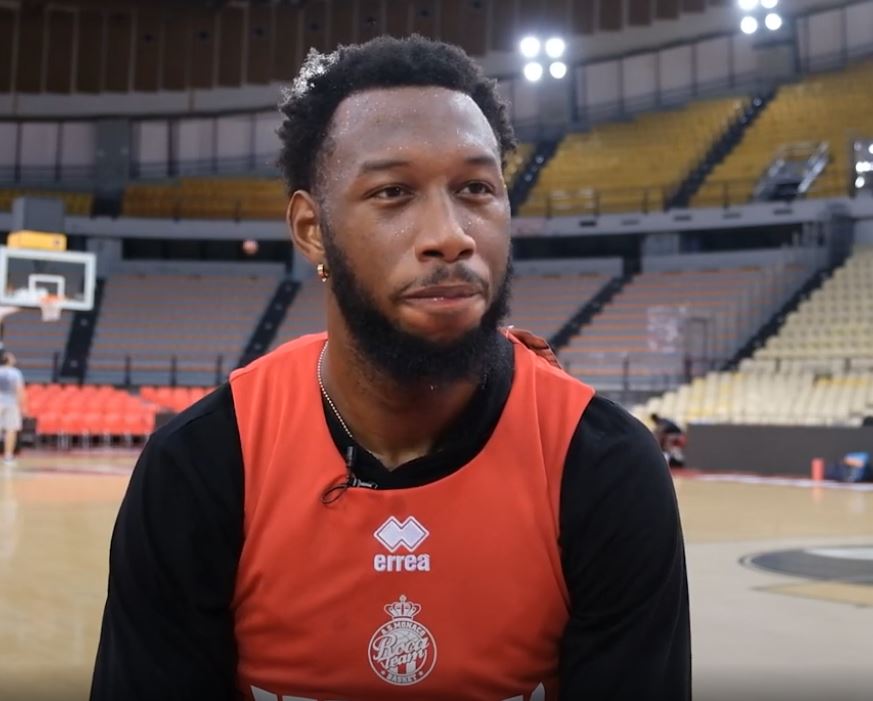Donta Hall is a tall man, at 6 feet 10 inches, and his presence has significantly influenced his basketball career. When combined with athleticism and perseverance, height—which is frequently seen as an abstract statistic—becomes a defining characteristic. Hall views his fame as more than just a gift; it has served as a springboard that has enabled him to transition from Alabama high school superstar to the fiercely competitive courts of Europe. With blocks, rebounds, and alley-oop finishes that electrify spectators, he changes the rhythm of games with his reach and timing, making his defensive role incredibly evident.
Hall’s journey has brought attention to the changing story of big men in basketball over the last ten years. The modern game requires movement and versatility, in contrast to previous generations where dominance was guaranteed just by height. Hall has established himself as a particularly inventive force by using his body with unexpected quickness. He is a large man who moves with purpose rather than just standing tall, giving coaches versatility in both attack and defense. His style of play is quite similar to that of contemporary EuroLeague powerhouses, who value skill just as much as strength.
Donta Hall – Bio & Career Details
| Category | Details |
|---|---|
| Full Name | Donta Hall |
| Date of Birth | August 7, 1997 |
| Birthplace | Luverne, Alabama, U.S. |
| Nationality | American / Azerbaijani |
| Height | 6 ft 10 in (2.08 m) |
| Weight | 232 lb (105 kg) |
| Playing Position | Center / Power Forward |
| College | Alabama (2015–2019) |
| Professional Debut | 2019 – Grand Rapids Drive (NBA G League) |
| NBA Teams | Detroit Pistons, Brooklyn Nets, Orlando Magic |
| European Clubs | AS Monaco, Baskonia, Olympiacos |
| Career Achievements | 2× LNB Élite Champion (2023, 2024), French Cup Winner (2023) |
| Current Team | Olympiacos B.C. (Greek League, EuroLeague) |
Hall went through both personal tragedy and professional development while he was in Alabama. His resilience was put to the test when his father passed away tragically during a game, but it also strengthened his resolve and kept him going. He was a defensive standout in high school, averaging double-digit blocks that left opponents perplexed. His reputation was quickly validated during his collegiate career, as seen by his remarkably clear statistical marker—leading the country in field goal percentage in his junior year at 72.6%, which demonstrated his ability to finish well above the rim.
Hall joined the G League in 2019 after going undrafted, and his efforts there significantly raised his profile. He rapidly demonstrated his readiness for larger settings by averaging more than 15 points and 10 rebounds. He went on to play in the NBA with the Pistons, Nets, and Magic, with his time in the Orlando bubble providing an especially useful showcase. His presence was extremely effective in the few minutes he had available, reminding scouts of his enormous potential and converting defensive stops into quick breaks.
However, the NBA can be harsh, so Hall’s journey changed to Europe, where he found fulfillment in addition to opportunities. He established himself as an anchor with AS Monaco, winning two league titles and a French Cup, which demonstrated how quickly he had adjusted to playing for his country. Supporters praised his performances for energizing offensive and stabilizing defenses, demonstrating his remarkable versatility across several systems.
By 2025, Hall’s transfer to the Olympiacos meant more than just a contract; it was an emblem of the globalization of basketball. He was able to elevate European basketball and bridge cultural divides thanks to his naturalized Azerbaijani nationality. Hall is a prime example of how height, skill, and cultural fluidity can come together to create a compelling story in the context of contemporary athletics, when identity is frequently international.
Beyond sports, height is a cultural attraction, but in basketball, it becomes essential to one’s identity. Similar to how Simone Biles’ small frame transformed gymnastics or Usain Bolt’s stride length revolutionized sprinting, Hall’s body is both a strength and a must. Every missed increases scrutiny, and every rebound gained confirms the advantage. But his extraordinarily resilient attitude has carried him through it all.
In a league where dominance frequently changes, Hall represents stability for Olympiacos and is more than simply another center. His rim protection and rebounding offer a base upon which strategies can be constructed. Despite all the hype about analytics and shooting efficiency, coaches understand that a team lacking height cannot compete at the highest levels. Similar to Ben Wallace’s renownedly subtle yet incredibly powerful influence during Detroit’s championship years, Hall’s contribution may not always be the main attraction on the ticket office, but it is still crucial.
It is inevitable that comparisons will be made, whether with European superstars like Walter Tavares or NBA titans like Rudy Gobert. Hall may give up inches to some, but he makes up for it with energy and quickness, which are especially useful in today’s game. Statistically speaking, his height puts him among the greats, but his versatility makes sure that his stature does not limit him.
Hall’s narrative appeals to more people than just statistics as he develops professionally. It exhibits tenacity, flexibility, and a remarkably similar ratio of aspiration to accomplishment that characterizes the life of many athletes. Although his 6’10” height will always be the first thing people notice about him, what really sets him apart is his character, fortitude, and ability to change.
Hall is still in his prime at the age of 28, and his adventure is far from over. His height has had a significant impact on his career, but it has never limited it. He is a figure who can inspire young players across countries or compete in the EuroLeague playoffs. His narrative implies that one’s legacy is mostly determined by how they use their height rather than by it alone.



